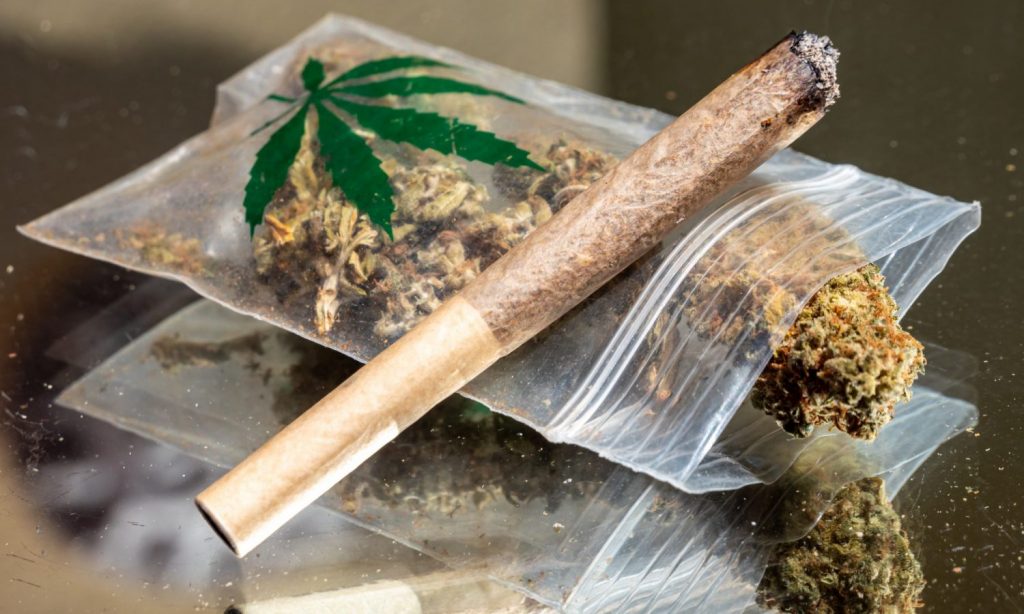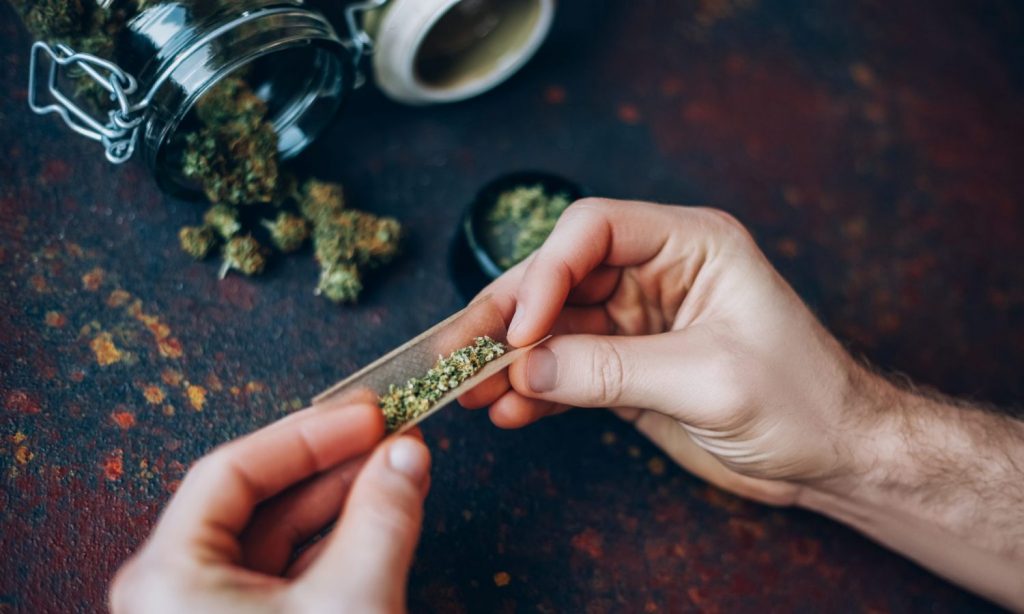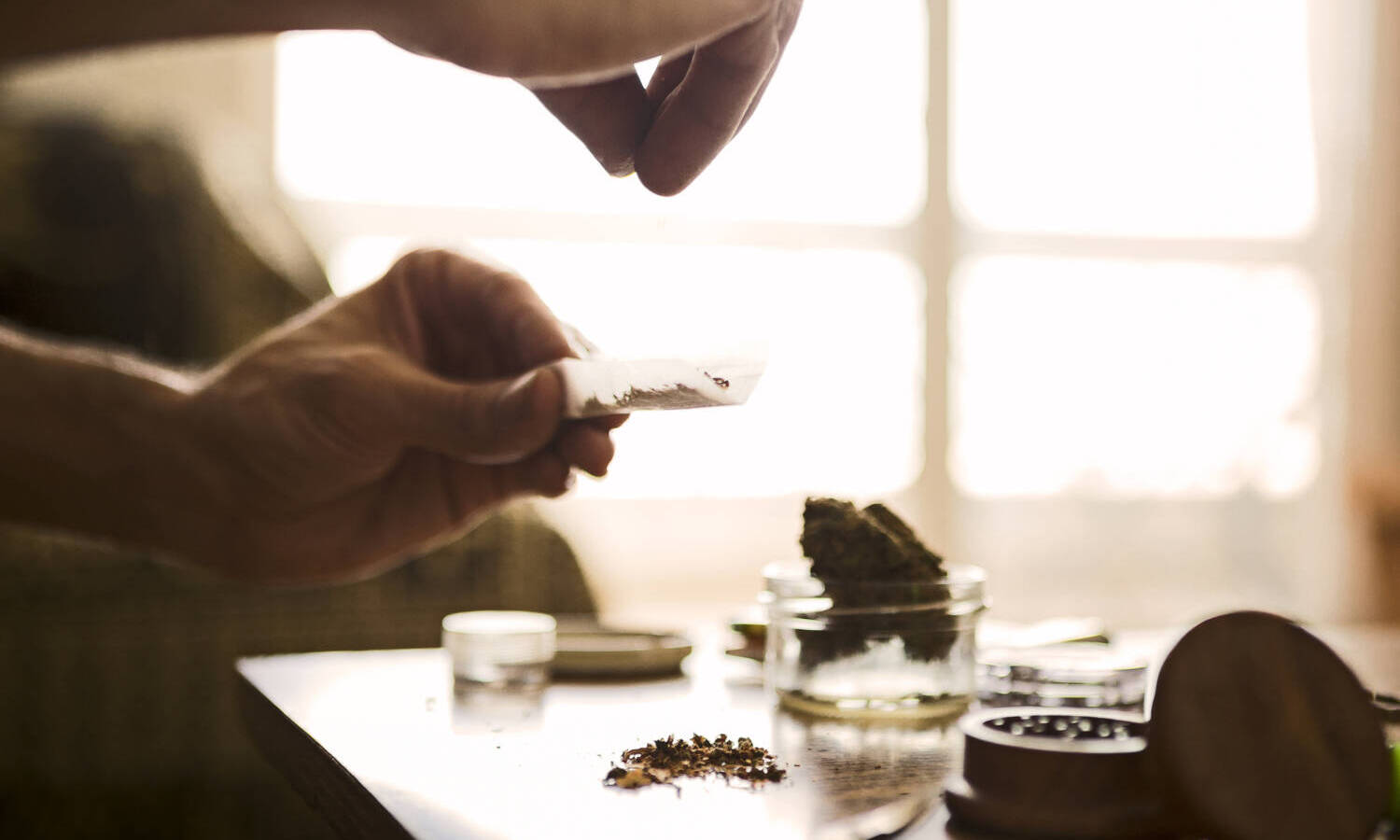Business
This Is What’s Considered High-THC Cannabis These Days

Displaying the THC percentage of cannabis products is important for consumers who likely want to know what they’re getting into before making a purchase. But what exactly constitutes high THC?
Cannabis products sold at licensed and reputable dispensaries are always labeled with their THC content. The value is written boldly on the package. Consumers that frequent these establishments are already used to seeing the THC content written in percentage or milligrams.
What is THC?
Delta-tetrahydrocannabinol (THC) is one of the major cannabinoid compounds present in cannabis plants. It is the main psychoactive compound. Molecules of this compound bind to brain receptors, and almost immediately, the neurotransmitter induces a “high”.

Cannabis breeders have pushed the boundaries of THC levels in the last 40 years. What stoners considered to be the highest THC level back then is merely a starting point for the hybrid varieties that are now in circulation. The growth of the cannabis industry can be compared to the rapid advancements in the computer industry.
Breeders now create plants with either a high THC percentage or a low THC percentage. These plants are then processed by manufacturers into cannabis extracts, edibles, flowers, etc which either have high THC concentration or low THC concentration.
There’s no specific quantity of THC that can be used to describe what a “high amount of THC” is. Scientific, personal, and commercial factors all play a role in this space. For example, some stoners get sky-high on THC levels of 15%, while some need it to be as high as 27% to feel any major effect.
High-THC Cannabis
Scientifically, the highest amount of THC that can be found in dried and cured buds of a weed variety is 30%. Modern breeders were able to achieve this feat by crossbreeding different premium varieties which originally have high levels of THC. These breeders are still hard at work trying to accommodate the demand for higher THC amounts.
When high levels of THC are consumed, the consciousness of the user gets altered intensely. Weed users from the 70s are usually amazed at how much progress breeders have made. A couple of decades ago, it took fewer THC levels like this to get stoned.
Using high levels of THC for the first time can leave the consumer feeling scared and confused, some say they were couch-locked for the entire time the drug stayed active. Subsequent use helps build tolerance, and users can then enjoy the relaxation, euphoria, happy and pleasantly intense effects of the drug.
The advancements in the THC numbers can also be attributed to commercial growers. These farmers have built and are still building on the genetic blueprint provided by modern breeders. They’ve also found amazing planting techniques that harness soil science knowledge and lighting technology to activate the genetic capability of each seed. Thanks to this, products are higher in cannabinoid, terpenes, and other important compounds concentrations

With high THC cannabis becoming more widely available, consumers will be able to get as high as possible without spending much. However, frequent use causes these consumers to develop a high tolerance. This results in quick cravings that need to be satisfied asap, meaning more cash is spent in the kong run trying to chase a high.
Growers Sometimes Fabricate High THC Levels
This concept is called THC inflation. At a point, it was observed that the numbers written on the packages were looking too good to be true. Shady companies that realize that consumers are always purchasing high prices have decided to alter their figures. To do this, they submit their product samples at multiple testing facilities, after which they settle on the highest percentage. Consumers are advised to remain vigilant while shopping for cannabis products. Having a trusted dispenser with a rock-solid reputation can guarantee the authenticity of the product label.
Consumption Method Determines THC Levels
The product labels of a product give the consumer an idea of what to expect, but the method of delivering THC into the body affects these expectations. Bioavailability explains this phenomenon better.
Bioavailability determines the amount of THC that remains active when it is introduced to the body system. Depending on the consumption method, this percentage can either be altered greatly or mildly. Here are some ingestion method and their THC bioavailability rates
This involves consuming oils, edibles, and capsules and sending them through the GIT and liver. This method of administration delivers between 5% to 13% of THC to the body. The THC is converted to 11-hydroxy-THC by the liver. This compound is much more potent and induces intense effects.
Here, cannabis oils are placed under the tongue. Through diffusion, the cannabinoids are delivered inconsistently into the bloodstream. The effects are set in less time than that observed in oral because it bypasses the liver and goes through the oral mucosa instead. The expected THC bioavailability can fall anywhere from 4% to 41%.
Inhalation
This refers to consuming cannabis either by smoking or vaping. The cannabinoids are introduced to the lungs, after which they travel into the bloodstream with the aid of diffusion. The best rate of bioavailability is offered through inhalation. At least 30% THC remains active when it gets to the bloodstream.

Final Word
Displaying the THC percentage of cannabis products is important for consumers who likely want to know what they’re getting into before making a purchase. Recently, some breeders have begun to work with not only THC, but the entirety of the available active cannabinoids present in a cannabis plant.
The total active cannabinoid will give consumers a better description of what to expect after using the drug, unlike THC levels which only describe the expected potency of the product. Premium strains are available globally, and more focus should be directed towards improving its diverse profile instead of its THC levels alone.
For now, seed banks, growers, and dispensaries can focus on meeting the demand for high-level THC, while the breeders focus on getting the most out of the best strains.
Source: https://thefreshtoast.com/cannabis/what-exactly-is-considered-high-thc-cannabis-these-days/
Business
New Mexico cannabis operator fined, loses license for alleged BioTrack fraud

New Mexico regulators fined a cannabis operator nearly $300,000 and revoked its license after the company allegedly created fake reports in the state’s traceability software.
The New Mexico Cannabis Control Division (CCD) accused marijuana manufacturer and retailer Golden Roots of 11 violations, according to Albuquerque Business First.
Golden Roots operates the The Cannabis Revolution Dispensary.
The majority of the violations are related to the Albuquerque company’s improper use of BioTrack, which has been New Mexico’s track-and-trace vendor since 2015.
The CCD alleges Golden Roots reported marijuana production only two months after it had received its vertically integrated license, according to Albuquerque Business First.
Because cannabis takes longer than two months to be cultivated, the CCD was suspicious of the report.
After inspecting the company’s premises, the CCD alleged Golden Roots reported cultivation, transportation and sales in BioTrack but wasn’t able to provide officers who inspected the site evidence that the operator was cultivating cannabis.
In April, the CCD revoked Golden Roots’ license and issued a $10,000 fine, according to the news outlet.
The company requested a hearing, which the regulator scheduled for Sept. 1.
At the hearing, the CCD testified that the company’s dried-cannabis weights in BioTrack were suspicious because they didn’t seem to accurately reflect how much weight marijuana loses as it dries.
Company employees also poorly accounted for why they were making adjustments in the system of up to 24 pounds of cannabis, making comments such as “bad” or “mistake” in the software, Albuquerque Business First reported.
Golden Roots was fined $298,972.05 – the amount regulators allege the company made selling products that weren’t properly accounted for in BioTrack.
The CCD has been cracking down on cannabis operators accused of selling products procured from out-of-state or not grown legally:
- Regulators alleged in August that Albuquerque dispensary Sawmill Sweet Leaf sold out-of-state products and didn’t have a license for extraction.
- Paradise Exotics Distro lost its license in July after regulators alleged the company sold products made in California.
Golden Roots was the first alleged rulebreaker in New Mexico to be asked to pay a large fine.
Source: https://mjbizdaily.com/new-mexico-cannabis-operator-fined-loses-license-for-alleged-biotrack-fraud/
Business
Marijuana companies suing US attorney general in federal prohibition challenge

Four marijuana companies, including a multistate operator, have filed a lawsuit against U.S. Attorney General Merrick Garland in which they allege the federal MJ prohibition under the Controlled Substances Act is no longer constitutional.
According to the complaint, filed Thursday in U.S. District Court in Massachusetts, retailer Canna Provisions, Treevit delivery service CEO Gyasi Sellers, cultivator Wiseacre Farm and MSO Verano Holdings Corp. are all harmed by “the federal government’s unconstitutional ban on cultivating, manufacturing, distributing, or possessing intrastate marijuana.”
Verano is headquartered in Chicago but has operations in Massachusetts; the other three operators are based in Massachusetts.
The lawsuit seeks a ruling that the “Controlled Substances Act is unconstitutional as applied to the intrastate cultivation, manufacture, possession, and distribution of marijuana pursuant to state law.”
The companies want the case to go before the U.S. Supreme Court.
They hired prominent law firm Boies Schiller Flexner to represent them.
The New York-based firm’s principal is David Boies, whose former clients include Microsoft, former presidential candidate Al Gore and Elizabeth Holmes’ disgraced startup Theranos.
Similar challenges to the federal Controlled Substances Act (CSA) have failed.
One such challenge led to a landmark Supreme Court decision in 2005.
In Gonzalez vs. Raich, the highest court in the United States ruled in a 6-3 decision that the commerce clause of the U.S. Constitution gave Congress the power to outlaw marijuana federally, even though state laws allow the cultivation and sale of cannabis.
In the 18 years since that ruling, 23 states and the District of Columbia have legalized adult-use marijuana and the federal government has allowed a multibillion-dollar cannabis industry to thrive.
Since both Congress and the U.S. Department of Justice, currently headed by Garland, have declined to intervene in state-licensed marijuana markets, the key facts that led to the Supreme Court’s 2005 ruling “no longer apply,” Boies said in a statement Thursday.
“The Supreme Court has since made clear that the federal government lacks the authority to regulate purely intrastate commerce,” Boies said.
“Moreover, the facts on which those precedents are based are no longer true.”
Verano President Darren Weiss said in a statement the company is “prepared to bring this case all the way to the Supreme Court in order to align federal law with how Congress has acted for years.”
While the Biden administration’s push to reschedule marijuana would help solve marijuana operators’ federal tax woes, neither rescheduling nor modest Congressional reforms such as the SAFER Banking Act “solve the fundamental issue,” Weiss added.
“The application of the CSA to lawful state-run cannabis business is an unconstitutional overreach on state sovereignty that has led to decades of harm, failed businesses, lost jobs, and unsafe working conditions.”
Business
Alabama to make another attempt Dec. 1 to award medical cannabis licenses

Alabama regulators are targeting Dec. 1 to award the first batch of medical cannabis business licenses after the agency’s first two attempts were scrapped because of scoring errors and litigation.
The first licenses will be awarded to individual cultivators, delivery providers, processors, dispensaries and state testing labs, according to the Alabama Medical Cannabis Commission (AMCC).
Then, on Dec. 12, the AMCC will award licenses for vertically integrated operations, a designation set primarily for multistate operators.
Licenses are expected to be handed out 28 days after they have been awarded, so MMJ production could begin in early January, according to the Alabama Daily News.
That means MMJ products could be available for patients around early March, an AMCC spokesperson told the media outlet.
Regulators initially awarded 21 business licenses in June, only to void them after applicants alleged inconsistencies with how the applications were scored.
Then, in August, the state awarded 24 different licenses – 19 went to June recipients – only to reverse themselves again and scratch those licenses after spurned applicants filed lawsuits.
A state judge dismissed a lawsuit filed by Chicago-based MSO Verano Holdings Corp., but another lawsuit is pending.
Source: https://mjbizdaily.com/alabama-plans-to-award-medical-cannabis-licenses-dec-1/
-

 Business2 years ago
Business2 years agoPot Odor Does Not Justify Probable Cause for Vehicle Searches, Minnesota Court Affirms
-

 Business2 years ago
Business2 years agoNew Mexico cannabis operator fined, loses license for alleged BioTrack fraud
-

 Business2 years ago
Business2 years agoAlabama to make another attempt Dec. 1 to award medical cannabis licenses
-

 Business2 years ago
Business2 years agoWashington State Pays Out $9.4 Million in Refunds Relating to Drug Convictions
-

 Business2 years ago
Business2 years agoMarijuana companies suing US attorney general in federal prohibition challenge
-

 Business2 years ago
Business2 years agoLegal Marijuana Handed A Nothing Burger From NY State
-

 Business2 years ago
Business2 years agoCan Cannabis Help Seasonal Depression
-

 Blogs2 years ago
Blogs2 years agoCannabis Art Is Flourishing On Etsy











